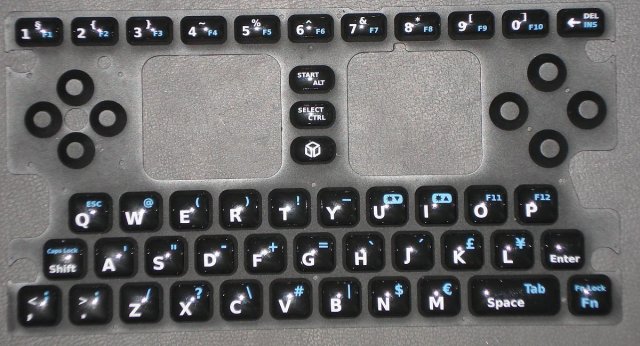Difference between revisions of "Keyboard"
(that info was incorrect. It's shift, not alt.) |
|||
| Line 16: | Line 16: | ||
Compose mode allows <shift><enter><fn> s a to combine " and a to get a special character, for example. | Compose mode allows <shift><enter><fn> s a to combine " and a to get a special character, for example. | ||
| − | If a program is greater than the Pandora's screen resolution, you can scroll in XFCE by holding down shift then clicking anywhere in the window and dragging it around. | + | If a program is greater than the Pandora's screen resolution, you can scroll in XFCE by holding down shift (or the left shoulder button) then clicking anywhere in the window and dragging it around. |
To do a '''hard-reset''' of the Pandora (in case of software crashes), press and hold the Pandora key and flick the power button to the right. (see also: [[power modes]]) | To do a '''hard-reset''' of the Pandora (in case of software crashes), press and hold the Pandora key and flick the power button to the right. (see also: [[power modes]]) | ||
Revision as of 07:18, 26 January 2011
The final keyboard layout on the Pandora looks like this:
In addition, XFCE has some default assignments:
- Shoulder Buttons: L=Shift, R=Ctrl
- D-pad: Cursor Keys
- L-Nub: Mouse Cursor
- Alt/Ctrl/Start(1 sec) Kill(long hold)
- R-Nub: Mousebutton Mode (L=L mousebutton click, U=Double-L-click, R=R mousebutton click, D=Middle mousebutton click)
- Game: A=Home, B=End, Y=PgUp, X=PgDn
- Shift-Enter: Compose mode
- Fn key: Sticky, so can be pressed before a key which you want to modify.
Compose mode allows <shift><enter><fn> s a to combine " and a to get a special character, for example.
If a program is greater than the Pandora's screen resolution, you can scroll in XFCE by holding down shift (or the left shoulder button) then clicking anywhere in the window and dragging it around.
To do a hard-reset of the Pandora (in case of software crashes), press and hold the Pandora key and flick the power button to the right. (see also: power modes)
In minimenu, pressing Y when an icon is highlighted brings up the readme files.
See also: a tutorial about Keyboard remapping.
Note: In DOSBox, in order to use the colon symbol, you have to press shift (left shoulder button) + Fn + ";". This also goes for the underscore symbol.
History
In the months before the first preorders were taken, there was much discussion and community voting about the best layout. This was one of the final votes. The final layout was different from either one of the two most popular community proposals, but incorporated some of the suggestions such as having a "Pandora" button.
